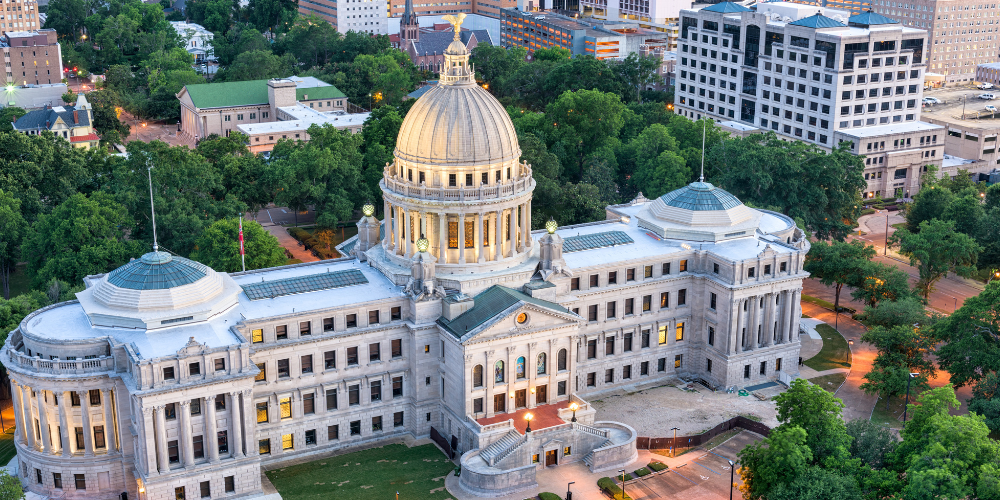Committee
Judiciary B
Author
Nick Bain
Session
2023 Session
Latest Action
The House failed to take action on HB 532 by the February 9 deadline, causing this bill to die on the calendar.
Explanation of the Bill
House Bill 532 would establish the “School Safety Guardian Program,” creating a framework for participating school districts to secretly designate certain educators as “School Safety Guardians.” These educators would receive training and be required to carry a concealed firearm at all times on school grounds. School Safety Guardians would be authorized to use deadly force and would be tasked with responding to any situation that would cause “bodily harm”—even in instances other than active shooter situations—and would be immune from civil liability for any “reasonable” actions taken within the scope of these duties. Their identities would be known only to school administrators and local law enforcement.
HB 532 would not alter existing state law, under which school districts maintain the authority to either authorize or prohibit school employees from carrying concealed weapons (districts do not have the authority to prohibit members of the public from carrying concealed weapons on “parts of the campus generally open to the public”). Though it is unclear how many districts currently authorize educators to carry concealed firearms, HB 532 would likely encourage additional districts to do so. More worrisome, HB 532 may encourage armed educators to discharge these firearms, as the bill waives civil liabilities and allows School Safety Guardians charged with a crime to use their status as a School Safety Guardian in their defense.
Because the presence of School Safety Guardians would be unknown to students and the public, the School Safety Guardian Program would not provide a meaningful deterrent to deadly violence on school grounds. The possibility of unnecessary escalation of deadly force by School Safety Guardians—even in instances where an initial, external threat of deadly force is not present—combined with the possibility of accidents related to authorized firearms, may result in a net increase in the likelihood of deadly violence in public schools.
HB 532 is nearly identical in scope to Senate Bill 2079, aside from a requirement in HB 532 that districts pay a monthly stipend to School Safety Guardians (the stipend is optional in SB 2079).
School Safety Guardian Program
Under HB 532, the School Safety Guardian Program would be established in the Office of Homeland Security within the Department of Public Safety. The Department of Public Safety would be tasked with promulgating rules, regulations, and training requirements in consultation with the Mississippi Department of Education.
The “governing body of a school,” often an elected school board, would have the authority to opt into establishing a School Safety Guardian Program at that school. The governing body would designate employees to participate, who would then be required to undergo a training program developed by the Department of Public Safety. The training program, at a minimum, would be required to include an instructional course, criminal background check, psychological screening, and an annual recertification training.
These educators, dubbed “School Safety Guardians,” would be tasked with “responding to an active shooter situation or other situation that would cause death or bodily harm on the school campus…” (Emphasis added.) These educators would be authorized to carry concealed weapons and be required to have these weapons on their person at all times on school grounds. School districts would be required to pay School Safety Guardians a monthly stipend of $500.
The identities of School Safety Guardians would be required to be documented and communicated to school administrators and local law enforcement, though notably, records relating to their identities would be exempt from the Public Records Act—meaning students and their families would be unable to determine which of their teachers have been authorized to carry concealed firearms.
Civil Immunity and Criminal Defense
School Safety Guardians would be immune from civil liability for any “reasonable” action taken within the scope of their official duties as a School Safety Guardian. Though these duties include a response to an active shooter situation, line 67 of HB 532 would extend qualifying situations to any involving “bodily harm,” authorizing School Safety Guardians to respond to a wide range of instances which fall short of deadly violence. However, if a School Safety Guardian fails to “carry out their official duties,” this immunity would be waived. If a School Safety Guardian is charged with committing a crime, HB 532 would authorize the defendant to use their status as a School Safety Guardian in their defense. HB 532 would also revise the existing statute on justifiable homicide (97-3-15) to authorize killing a human being “in the performance of duty as a member of a School Safety Guardian Program.”
While the actions of a School Safety Guardian would certainly be welcome in the instance of an active shooter situation, the language of HB 532 would theoretically authorize a School Safety Guardian to use their weapon to respond to other instances, such as an unarmed altercation between students, in which there was not initially the threat of deadly force. This could serve to unnecessarily escalate a non-deadly altercation to a deadly one, in which an unarmed student could become the victim. And while, after the fact, the justice system may ultimately decide the use of deadly force by a School Safety Guardian was unwarranted, the School Safety Guardian may nonetheless feel empowered to use such deadly force in the moment due to the civil and criminal protections provided under HB 532.
| Date | Details |
|---|---|
| 1/9/23 | On January 9, HB 532 was referred to the House Judiciary B Committee. |
| 1/31/23 | On January 31, the House Judiciary B Committee passed a committee substitute for HB 532. |
| 2/9/23 | The House failed to take action on HB 532 by the February 9 deadline, causing this bill to die on the calendar. |

